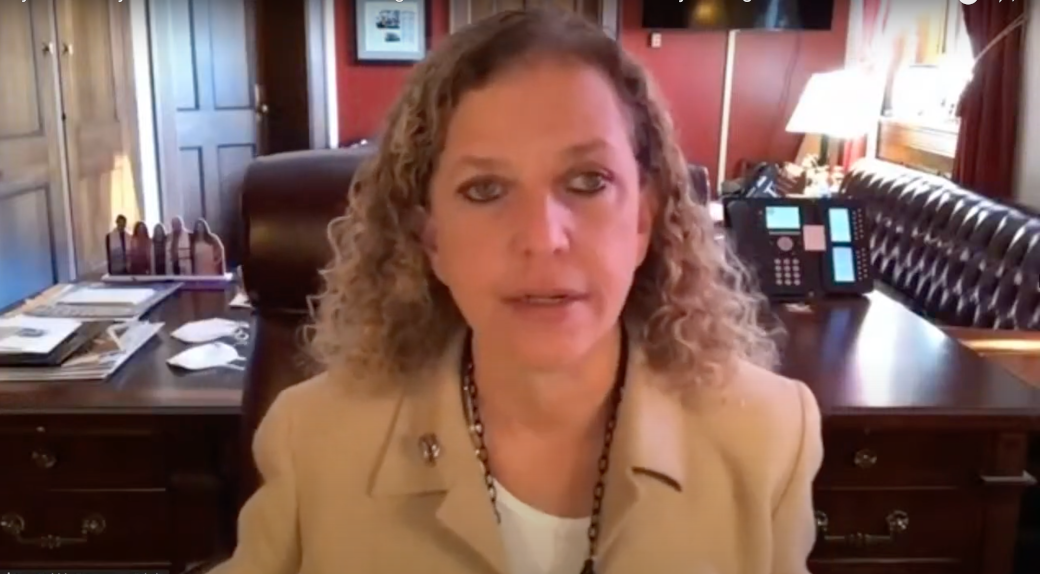Congress Must Avoid ‘Overly Prescriptive’ Incident Reporting To Avoid Missing Larger Cyberattacks
Too many reports could burden federal officials, said the executive director of the Alliance for Digital Innovation.
Megan Boswell

WASHINGTON, January 11, 2022 — The executive director of an organization that pushes information technology reform in government testified Tuesday in front of the House Oversight committee that any incident reporting requirements that Congress is considering should not burden officials so much that they end up missing more serious breaches of cybersecurity.
Ross Nodurft of the Alliance for Digital Innovation told lawmakers studying the reform of the Federal Information Security Management Act, a 2002 law which implements an information security and protection program, that the amended legislation should consider keeping Congress abreast of incidents, but should be mindful of how it defines a security problem.
“As Congress considers defining major incidents or codifying vulnerability response policies, any legislation should be mindful of the dynamic nature of responding to cybersecurity challenges facing government networks,” Nodurft said. “If Congress is overly prescriptive in its definition of an incident, it runs the risk of receiving so many notifications that the incidents which are truly severe are missed or effectively drowned out due to thee frequency of reporting,” he said in prepared remarks.
The comments come on the heels of a year that included major cybersecurity attacks, including the attacks on software company SolarWinds, oil transport company Colonial Pipeline, which prompted a Senate hearing on the matter. The House Oversight committee released details of its investigation into some of the breaches in November.
The comments also come after lawmakers proposed new reporting requirements on companies. Those proposed laws would make it mandatory that small and large companies report incidents to the government so they can best prepare a response to protect Americans.
In July, Sens. Mark Warner, D-Virginia, Marco Rubio, R-Florida, and Susan Collins, R-Maine, introduced the Cyber Incident Notification Act of 2021, which requires federal and private sector cybersecurity intrusions to be reported to the government within 24 hours.
Cyber incident reporting was recently left out of a Senate bipartisan version of the National Defense Authorization Act.
Lead cybersecurity officials in government have been calling for mandatory breach reporting to government. Brandon Wales, executive director of the Cybersecurity and Infrastructure Security Agency, told the same Oversight committee in November that Congress should force companies to share that kind of information. Last summer, a Department of Justice official said he supports mandatory breach reporting.
In October, Secretary of State Antony Blinken announced the department intends to create a new cyber bureau to help tackle the growing challenge of cyber warfare.
Agency roles should be clarified
Rep. Debbie Schultz, D-Florida, talked about the varied organizations and institutions in her state that have been affected by cyberattacks and threats, including the Miami-based software company Kaseya, which experienced a major ransomware attack.
Schultz stated that there are two entities that are critical to federal cybersecurity: the Cybersecurity and Infrastructure Security Agency and the Office of the National Cyber Director.
Grant Schneider, senior director of cybersecurity services, Venable, said that the Office of the National Cyber Director acts as a conductor in the framework of FISMA. These organizations work with other organizations, such as the National Institute of Standards and Technologies, and the Office of Management and Budget.
With so many organizations, Nodurft explained how important it is for the roles within these organizations to be defined. He talked about how important it is for agencies to know where to turn to report cyberattacks. In part with this, he continued, agencies who “are proactively trying to mitigate their cyber risks” need clear reporting channels and clear areas of jurisdiction to go to for various issues.
According to Nodurft, these defined roles would “make it much easier for [agencies] to work together, to build a broader defensive structure.”











Member discussion